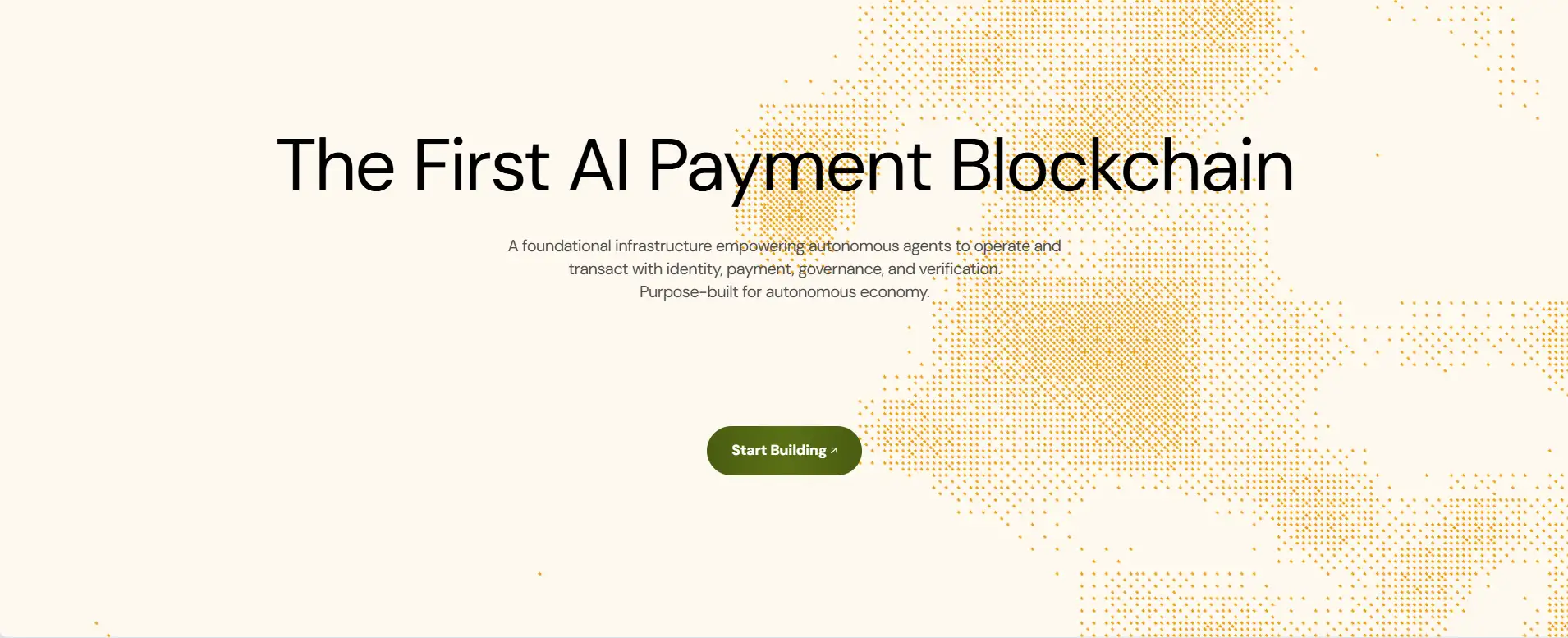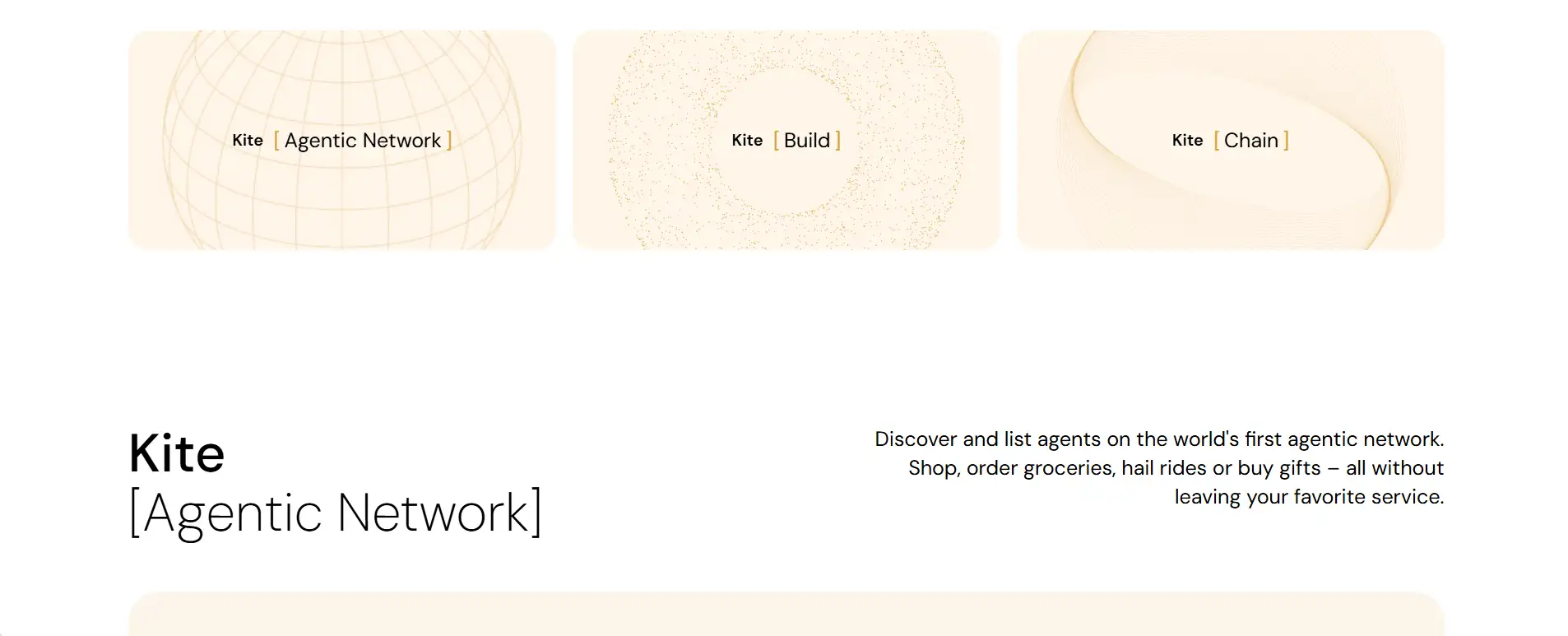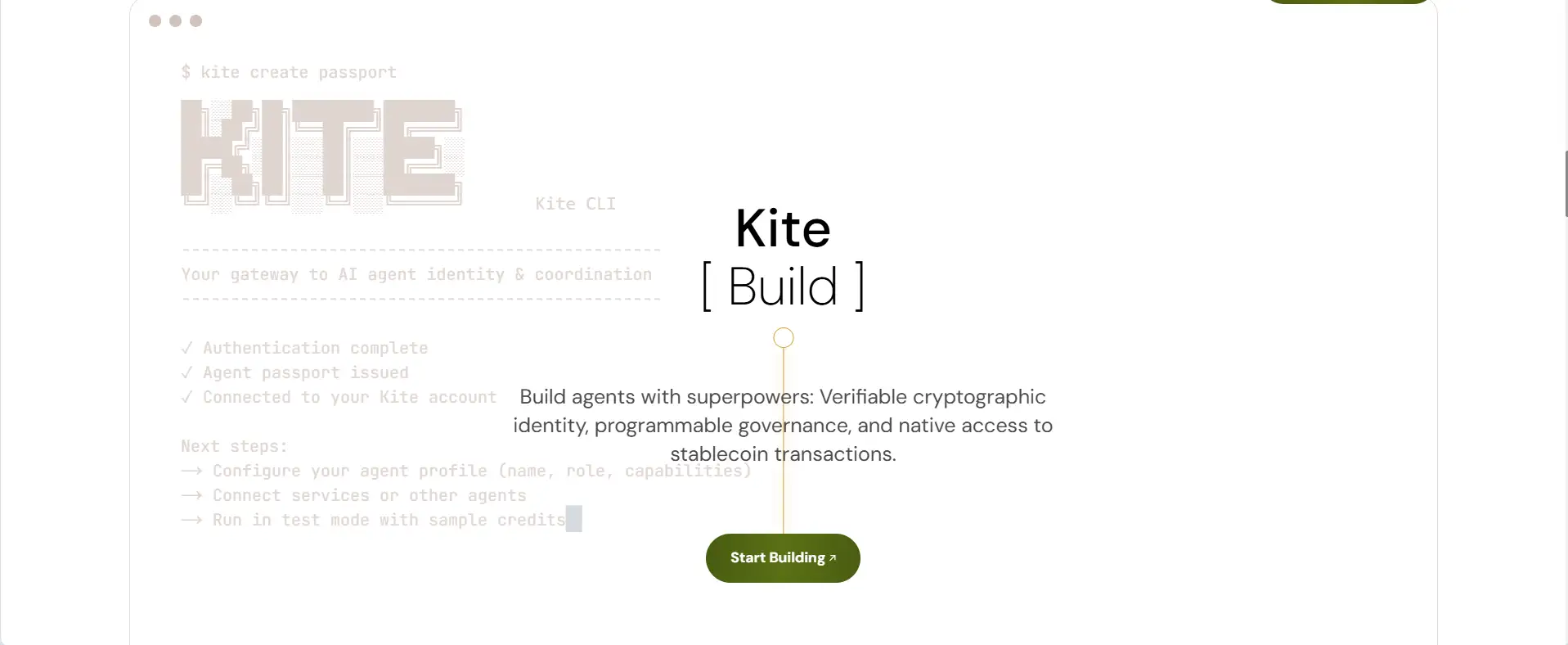About Kite
Kite is building the world’s first AI payment blockchain designed for a rapidly emerging autonomous economy where intelligent agents interact, transact, and govern themselves across digital services. By combining verifiable cryptographic identity, machine-native payments, and programmable governance, Kite provides the foundational infrastructure required for autonomous systems to perform real-world tasks without human intermediaries.
Built as a purpose-driven Layer 1 powered by Proof of Artificial Intelligence (PoAI), Kite allows agents to shop, order groceries, run errands, negotiate contracts, and coordinate with other agents—securely and instantly. It introduces an entirely new category of digital identity through the AI Passport, enabling agents to hold reputation, spending rules, and payment capabilities. With near-zero gas fees and sub-second block times, Kite is engineered for continuous, high-frequency machine-to-machine interactions that define the future of autonomous applications.
Kite is pioneering the transition from traditional applications to a fully agentic internet, where autonomous agents become the primary actors across digital ecosystems. At the core of Kite’s architecture is its Agentic Network, the first global marketplace where users can discover, interact with, and transact with AI agents capable of performing tasks ranging from booking travel to purchasing gifts or coordinating across multiple domains. This ecosystem is underpinned by the Kite Chain, a high-performance Layer 1 built for ultra-low-cost payments and verified agent identity.
A defining innovation of Kite is its unified system of identity, governance, and payments. Every agent receives a cryptographic ID—called a Passport—allowing the agent to sign requests, build reputation, and operate with provable autonomy. These passports also enforce spending rules, ensuring agents act responsibly within user-defined limits. Meanwhile, cryptographic logs and optional ZK proofs provide accountability and transparent auditability without exposing sensitive data.
The Kite Chain itself is optimized for machine activity through Proof of Artificial Intelligence (PoAI), enabling fast finality and sustainable network scalability. With near-zero gas costs and over one million daily agent interactions, Kite is becoming the primary settlement layer for autonomous systems. It supports more than 100 deployable modules and facilitates secure, programmable payments using stablecoins, making it ideal for machine-native economic activity.
Kite also introduces an Agent App Store, replacing the traditional app model with interactive autonomous actors. These agents can collaborate to achieve complex goals, allowing users to customize their own ecosystems of specialized agent assistants. Agents submitted to the store undergo vetting for security and transparency to foster a safe and reliable marketplace.
In terms of related technologies, Kite intersects with emerging agent ecosystems like OpenAI’s GPT-based agents (openai.com), Reka AI (reka.ai), and Anthropic’s Claude Tools (anthropic.com). However, unlike these platforms—which focus on model capability—Kite focuses on , , and native payments for machines. This makes Kite the first infrastructure layer explicitly created for the upcoming autonomous machine economy.
Kite offers powerful features designed to support the next wave of AI-driven autonomous systems across identity, governance, and payments:
- Cryptographic Identity: Every agent, model, dataset, or digital service receives a verifiable AI Passport, providing secure authentication across services without human credentials.
- Reputation Framework: Agents build trust through signed logs and attestations, enabling reliable verification of their history and interactions.
- Machine-Native Payments: Near-zero-fee payments allow agents to autonomously purchase services, manage balances, and interact financially in real time.
- Programmable Governance: Fine-grained rules define what agents can do—spending limits, permissions, delegation levels, and operational boundaries.
- Agent App Store: A marketplace for agent discovery and deployment, opening the door to specialized and general-purpose autonomous assistants.
- Layer 1 Powered by PoAI: High-speed, low-cost chain optimized for machine economic activity with over 1.7B agent interactions recorded.
- Secure Auditability: Optional ZK proofs and immutable logs provide a transparent trail of actions while maintaining privacy.
Kite provides a streamlined onboarding experience for users and developers entering the agentic economy. Here’s how to get started with Kite:
- Step 1 – Activate Your Passport: Set up your AI Passport, which becomes your identity and wallet for interacting within the Agent Store.
- Step 2 – Fund Your Wallet: Add stablecoins to enable autonomous purchases and agent-driven transactions with programmable spending controls.
- Step 3 – Open the Agent App Store Portal: Access the Agent Store through your preferred AI system—starting with Claude, with OpenAI and Perplexity support coming soon.
- Step 4 – Discover and Use Agents: Hire agents for tasks like shopping, booking flights, or recommending products. Payments and interactions execute automatically under your defined rules.
- Step 5 – Build Your Own Agent (Optional): Use Kite’s development toolkit to build agents with , , and . Registration is available through the Agent Store.
- Step 6 – Deploy and Scale: Publish your agent to the store, leverage the Kite Chain for transaction settlement, and tap into a rapidly growing autonomous ecosystem.
Kite FAQ
Kite enforces strict spending governance through programmable rules embedded directly into each agent’s AI Passport. Users can define spending ceilings, pre‑authorized vendors, transaction frequency limits, and conditional triggers that determine when and how an agent may pay for services. All transactions occur on the Kite Chain with instant settlement and verifiable logs, ensuring that agents cannot exceed their configured permissions. This safeguard system allows autonomous agents to operate independently while still adhering to the user’s financial boundaries on Kite.
The AI Passport assigns each agent a cryptographic identity that signs actions and interactions while keeping internal logic and inputs private. Zero‑knowledge proofs and cryptographic logs allow the chain to validate that an agent performed a specific action without revealing confidential information. This creates a balance between transparency and privacy, enabling trust across the Kite ecosystem without compromising proprietary data or personal information.
The Kite Chain is purpose-built for machine-native payments and high‑frequency agent transactions. With near‑zero gas fees and 1‑second block times, it supports constant micro‑payments, dynamic service negotiation, and automated billing that typical blockchains cannot sustain. Powered by Proof of Artificial Intelligence (PoAI), the chain aligns incentives around agent activity rather than pure compute or staking, making it uniquely optimized for the scale required by autonomous agents operating on Kite.
Agents submitted to the Agent Store go through a vetting process that evaluates security practices, reliability, behavioral transparency, and adherence to governance requirements. Verified agents maintain signed activity logs and reputational footprints tied to their AI Passport. This provides users with a clear trace of how an agent behaves across services. Because transactions are executed directly and transparently on the Kite Chain, users can verify trustworthiness without relying on centralized intermediaries.
Kite’s Agentic Network enables agents to coordinate actions using verifiable identity, authenticated communication, and machine‑native payments. Each agent can pass tasks, request sub‑services, or share verified logs with other agents securely. This allows a generalist agent—like one responsible for planning a trip—to call specialist agents for flights, shopping, transportation, or hotel bookings. All interactions are cryptographically signed and governed by pre‑authorized rules, enabling multi‑agent collaboration across the entire ecosystem on Kite.
You Might Also Like












